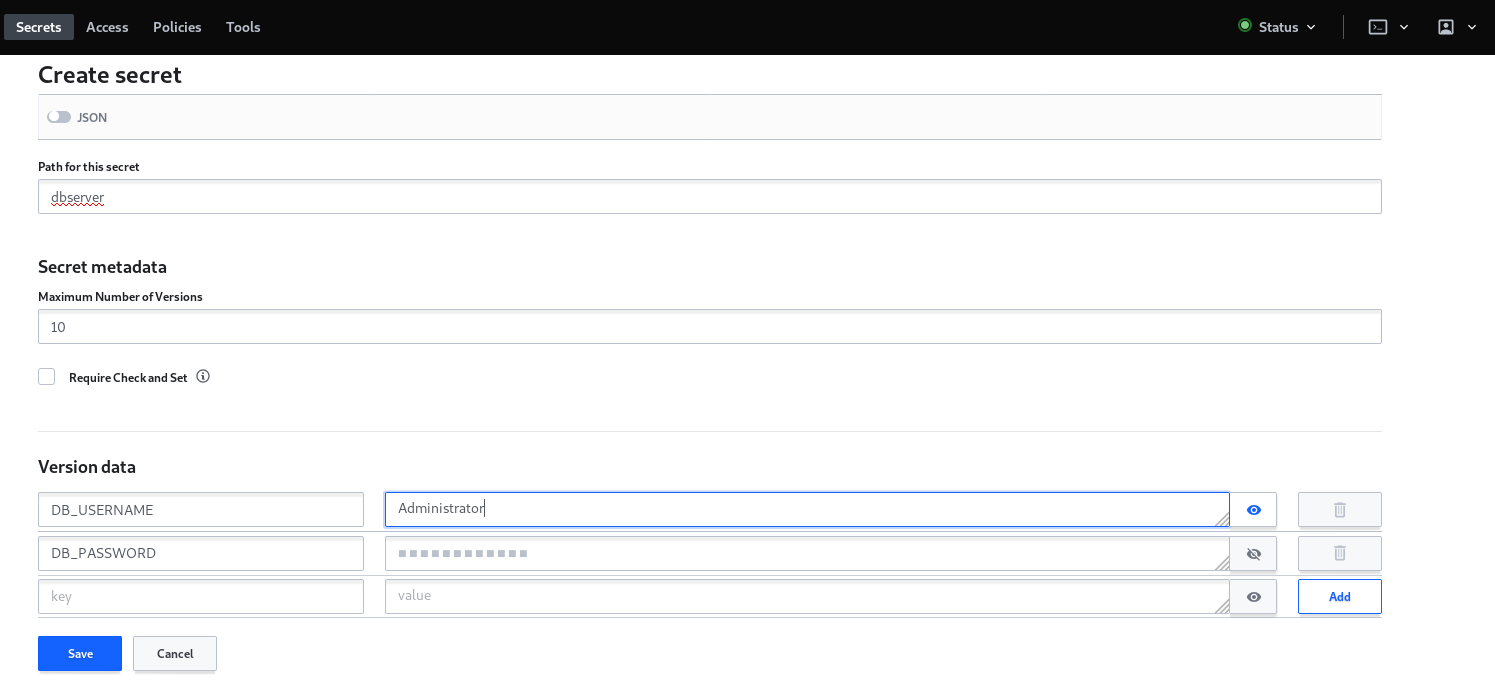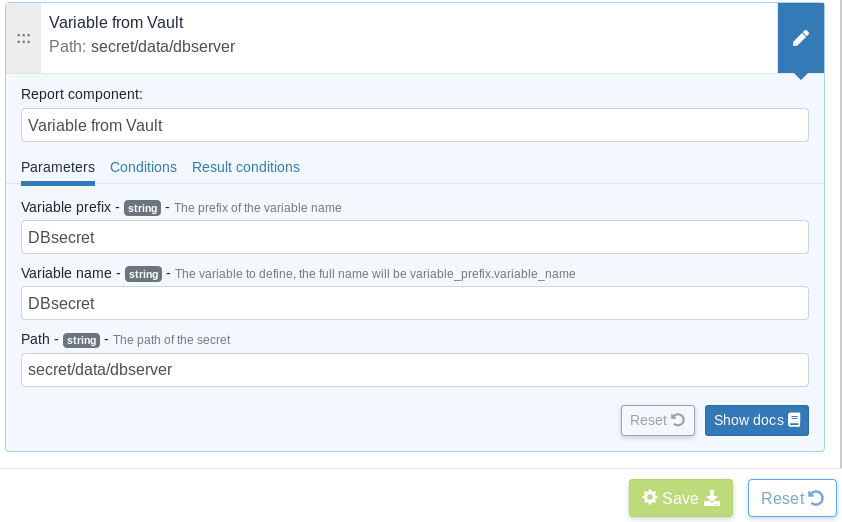Vault
Vault is a centralized custom solution by Hashicorp, to manage secret that provides:
-
A database to securely storing secrets.
-
A unified interface to any secret.
-
Tight access control based on policies.
-
A detailed audit log.
-
Knowing who is accessing what secret.
-
Several authentication methods to access it.
This plugin provides a possibility to fetch secrets from a Vault server and use them as Rudder variables directly on the agent. For security purpose, the Rudder server itself does not need to have access to the Vault.
Installation
-
You’re supposed to already have your Vault server installed and configured, also configured with secrets that can be any of the following types: SSL certificates and keys for your organization’s domain, credentials to connect to a corporate database server.
-
Install the plugin on your Rudder server
-
Edit the configuration file in
/var/rudder/plugin-resources/vault.jsonon each agent. This config file must contain the address of your Vault server, credentials to access it based on the auth mode you want to use. Auth modes can be: token, userpass or tls.
To note that if you have a valid certificate in your Vault server, you need to specify 'true' as a value in the verify_certificate key which is the case by default however if you have a self signed one, you need to simply switch the value to 'false'.
A sample config can be found on the Rudder server in /opt/rudder/share/plugins/vault/sample_vault.json.
Usage
Use the Variable from Vault generic method in Rudder to fetch secrets.
Make sure the agent have a proper vault.json configuration as mentioned above.
Example of usage :
-
Secret definition via Vault Web Interface:
Start by creating the secret for the database server login information by clicking on the already defined secret engine for the key and value storage which is /secret:

Then click on creating secret:

Now you have to set the parameters for your secret, which are basically the path (in other words the name of the secret), the number of versions and most importantly the key values parameters:

-
Secret fetching via Rudder Server technique editor:
Finally you need to define the generic method on the Rudder technique editor, the most important parameter is the path to the secret which needs to include /data
so it can retrieve the key and value that are defined under the secret name.

← User management Windows →